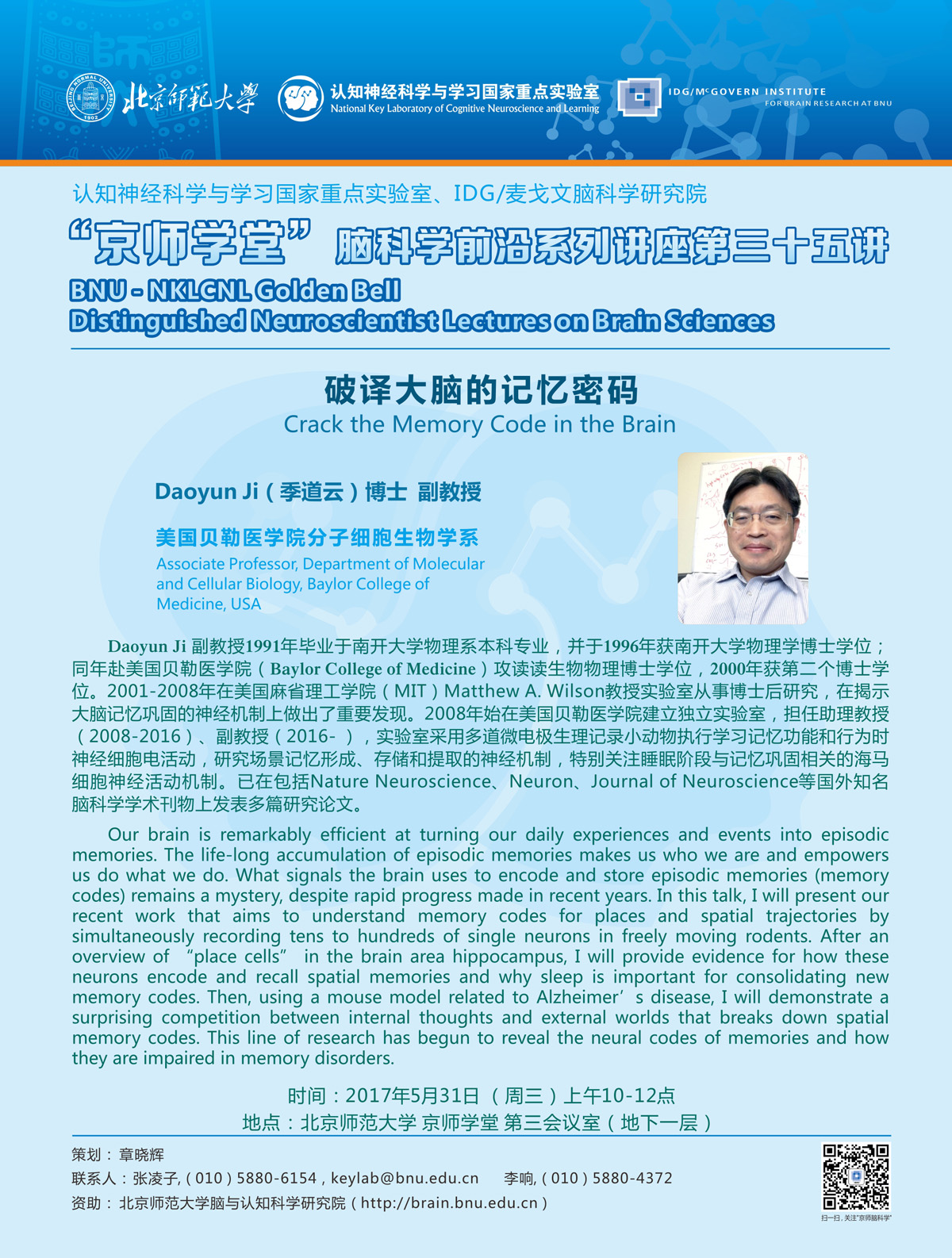BNU“京师学堂”脑科学前沿系列讲座第三十五讲
破译大脑的记忆密码
Crack the Memory Code in the Brain
Daoyun Ji(季道云)博士、副教授
美国贝勒医学院分子细胞生物学系
Associate Professor, Department of Molecular and Cellular Biology, Baylor College of Medicine, USA
Daoyun Ji副教授1991年毕业于南开大学物理系本科专业,并于1996年获南开大学物理学博士学位;同年赴美国贝勒医学院(Baylor College of Medicine)攻读读生物物理博士学位,2000年获第二个博士学位。2001-2008年在美国麻省理工学院(MIT)Matthew A. Wilson教授实验室从事博士后研究,在揭示大脑记忆巩固的神经机制上做出了重要发现。2008年始在美国贝勒医学院建立独立实验室,担任助理教授(2008-2016)、副教授(2016- ),实验室采用多道微电极生理记录小动物执行学习记忆功能和行为时神经细胞电活动,研究场景记忆形成、存储和提取的神经机制,特别关注睡眠阶段与记忆巩固相关的海马细胞神经活动机制。已在包括Nature Neuroscience、Neuron、Journal of Neuroscience等国外知名脑科学学术刊物上发表多篇研究论文。
摘要:Our brain is remarkably efficient at turning our daily experiences and events into episodic memories. The life-long accumulation of episodic memories makes us who we are and empowers us do what we do. What signals the brain uses to encode and store episodic memories (memory codes) remains a mystery, despite rapid progress made in recent years. In this talk, I will present our recent work that aims to understand memory codes for places and spatial trajectories by simultaneously recording tens to hundreds of single neurons in freely moving rodents. After an overview of “place cells” in the brain area hippocampus, I will provide evidence for how these neurons encode and recall spatial memories and why sleep is important for consolidating new memory codes. Then, using a mouse model related to Alzheimer’s disease, I will demonstrate a surprising competition between internal thoughts and external worlds that breaks down spatial memory codes. This line of research has begun to reveal the neural codes of memories and how they are impaired in memory disorders.
时间:2017年5月31日 (周三)上午10-12点
地点:北京师范大学 京师学堂大楼 第三学术报告厅(地下一层)
